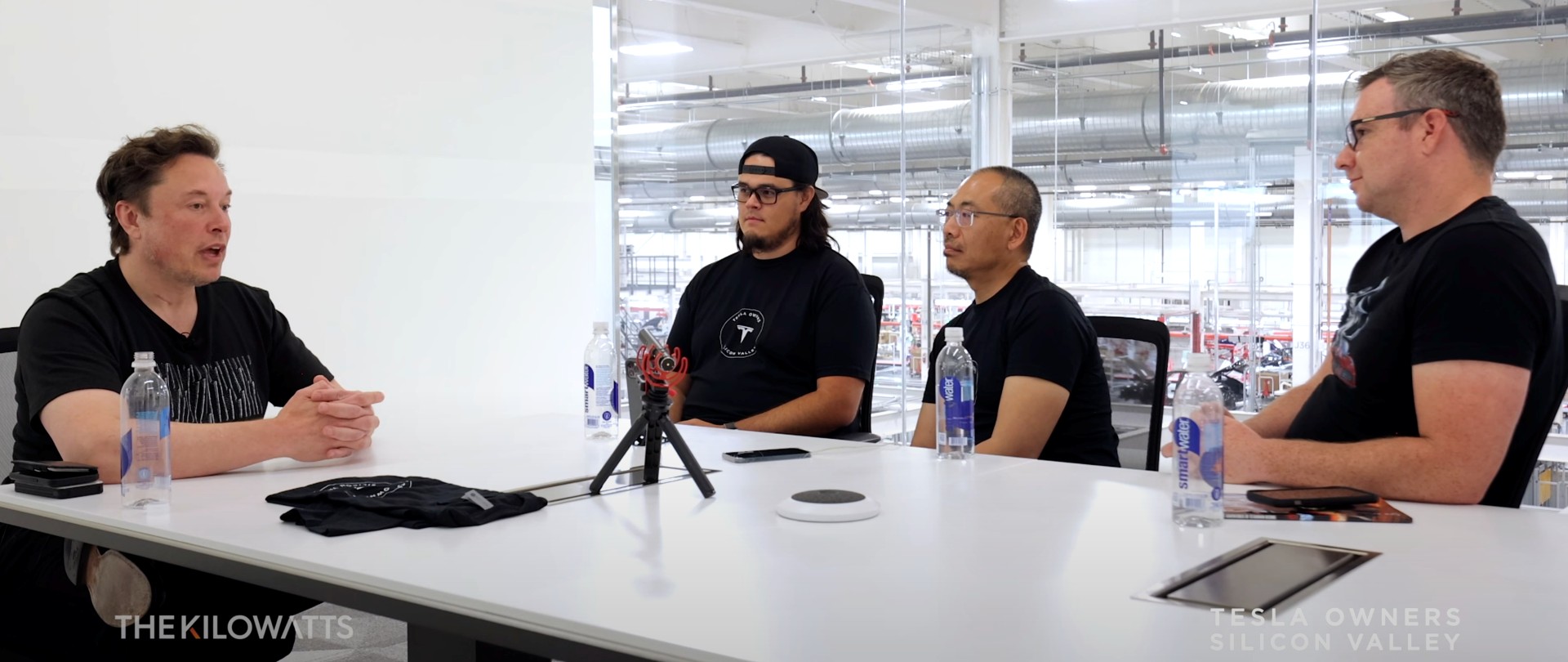
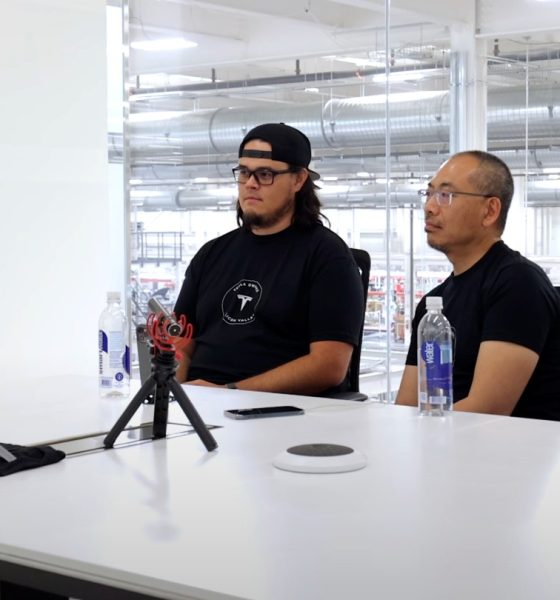
News
Elon Musk says Rivian’s priority should be solving financials ‘or they’re doomed’
Tesla CEO Elon Musk knows a thing or two about struggling through the toughest financial circumstances when starting an electric vehicle company. He recently described some of his thoughts on Rivian, an EV startup that is struggling with the early manufacturing and financial woes that are synonymous with the early days of owning an electric vehicle maker.
Rivian came onto the scene several years ago when it unveiled the R1T pickup, which was set to be the most high-tech and advanced truck on the market. Deliveries started late last year and the truck surely did not disappoint owners, as build quality and the truck’s utility were enough to give the R1T early promise. Meanwhile, Rivian is fending off a struggling performance on the stock market, manufacturing growing pains, and figuring out affordability with its products in its early days.
Recently, the company scrambled some of its executives by parting with the VP of Manufacturing, Charly Mwangi. CEO RJ Scaringe stated in an email to employees that “This is an important time for our growing business, all of which is happening in an extremely challenging environment. We are well-positioned for long-term success, but we must continuously evaluate how we operate.”
The changeup saw Frank Klein assume the role of Manufacturing VP while also performing the duties of his traditional role of COO. The changes are not out of the ordinary for an EV startup, but other events in Rivian’s recent history have given the indication that they’re still working through growing pains.
In March, Rivian hiked prices on R1T and R1S vehicles and stated that finalized orders would not be affected. This sent customers who placed but didn’t finalize their orders into a frenzy because the price hikes applied to their vehicles. Prices increased by at least 17 percent before Rivian backtracked and honored orders placed on or before March 1.
Despite the company being in its early phases and still having monumental financial support from backers like Amazon, Musk offered a few words of advice when discussing the affordability threshold for producing cars with Tesla Owners Silicon Valley and others.
“That affordability threshold is very important,” Musk said. “It must both be a good value for money and be affordable in order to achieve good unit volumes. And where car companies can get, kind of, painted into a corner of doom is: If the cost of a car is so high that they have to raise the price of the car to the point where the price of the car is…and Rivian, I think, has this problem, you know, they’re going to need to fix it, or they’re in deep trouble…they raise the price to the point where only a very small number of people can afford the car, no matter how desirable it is. Then, at that point, if you cannot achieve a unit volume that covers your fixed costs, you’re screwed.”
Musk previously offered advice to Rivian when reports of a second factory in the United States began to develop. Musk advised the company to ramp manufacturing at its first facility before committing to a second factory, but Rivian moved forward with plans to build a plant in Georgia, which has faced backlash from several groups.
I’d recommend they get their first plant working. It’s insanely difficult to reach volume production at affordable unit cost.
— Elon Musk (@elonmusk) August 11, 2021
Despite Musk’s want for Tesla to be on top, he realizes more than one company will be needed to continue with the EV transition. Musk’s advice may fall of deaf ears, but it is certainly known within Rivian that the struggles may continue through this growth period. Staying resilient could pay dividends, and the company could one day become profitable and amongst the best EV brands on Earth.
I’d love to hear from you! If you have any comments, concerns, or questions, please email me at joey@teslarati.com. You can also reach me on Twitter @KlenderJoey, or if you have news tips, you can email us at tips@teslarati.com.

News
Tesla Model Y dominated China’s NEV sales in December 2025
As per sales data from China, the all-electric crossover finished first among the country’s best-selling EVs and plug-in hybrids.
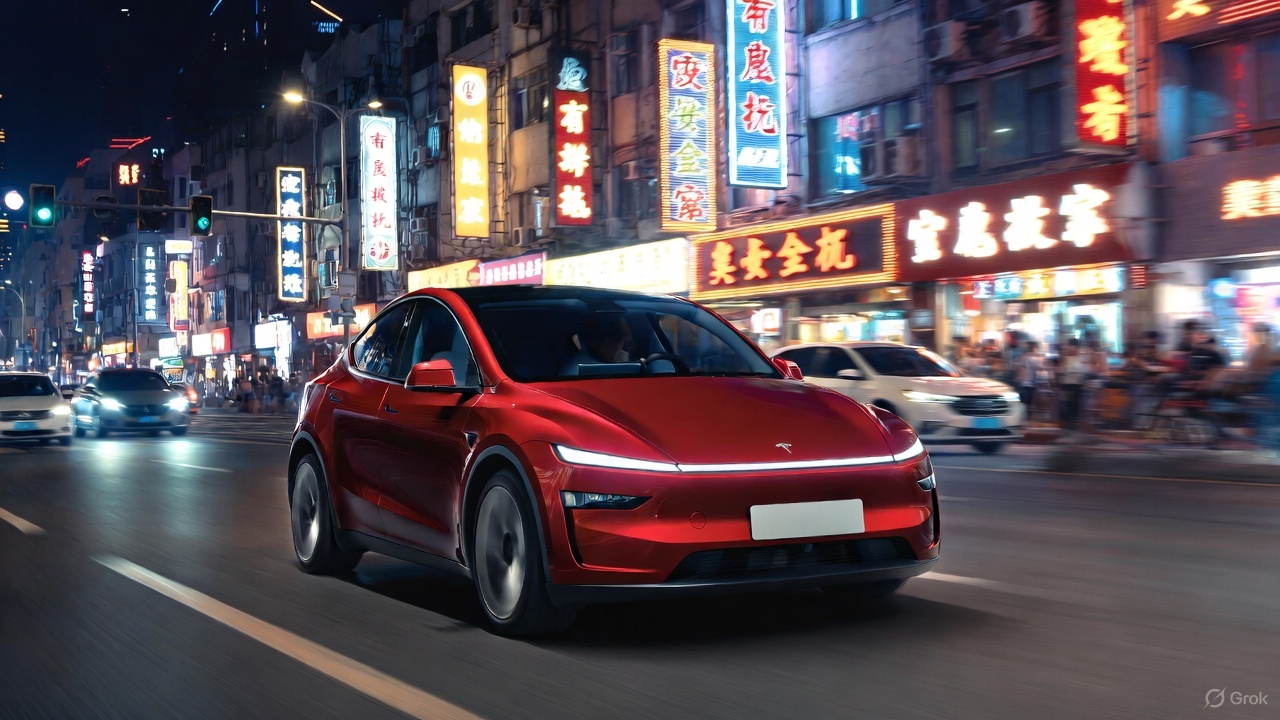
The Tesla Model Y ranked as China’s top-selling new energy vehicle in December, leading an intensely competitive market packed with strong domestic brands.
As per sales data from China, the all-electric crossover finished first among the country’s best-selling EVs and plug-in hybrids. The Model 3 also placed within the country’s top ten vehicles.
Model Y leads China’s NEV rankings
The graphic, shared on X and sourced from Chinese auto industry data aggregator Yiche, listed the top 20 best-selling new energy vehicles in China for December. Tesla’s Model Y claimed the No. 1 position with roughly 65,874 units sold, finishing well ahead of a field dominated by domestic manufacturers such as BYD, SAIC-GM-Wuling, and Xiaomi.
The chart also showed strong performances from other high-volume models, including BYD’s Qin Plus, which sold 46,837 units during the month. Tesla’s Model 3 ranked eighth overall, with just under 28,000 units sold, placing it ahead of numerous locally produced competitors despite its rather premium price.
Tesla China’s strong December
Tesla China had a stellar December 2025. During the month, Tesla sold 97,171 vehicles wholesale in China, as per data from the China Passenger Car Association (CPCA). The result marked Tesla China’s second-highest monthly total on record, trailing only November 2022’s peak of 100,291 units.
December’s wholesale figure represented a 3.63% increase from the same month a year earlier and a 12.08% jump from November. Industry watchers have suggested that part of the surge was driven by Tesla pulling deliveries forward to allow customers to benefit from more favorable purchase tax policies before year-end.
Despite this, December’s results suggest that Tesla’s Model Y and Model 3 remain highly competitive offerings in China, which is extremely impressive considering the competition from domestic players and their still premium price.
Elon Musk
Elon Musk’s net worth is nearing $800 billion, and it’s no small part due to xAI
A newly confirmed $20 billion xAI funding round valued the business at $250 billion, adding an estimated $62 billion to Musk’s fortune.
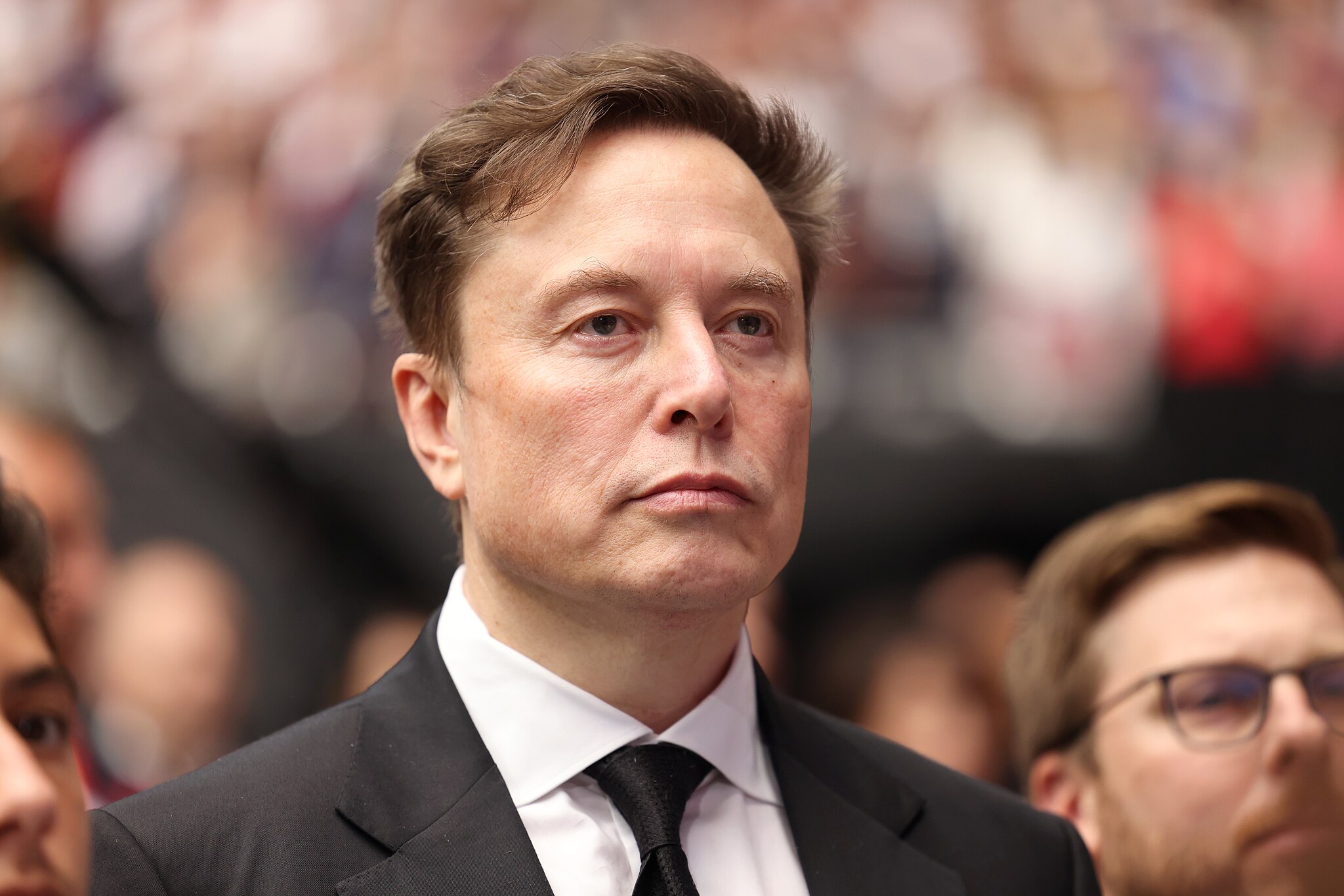
Elon Musk moved within reach of an unprecedented $800 billion net worth after private investors sharply increased the valuation of xAI Holdings, his artificial intelligence and social media company.
A newly confirmed $20 billion funding round valued the business at $250 billion, adding an estimated $62 billion to Musk’s fortune and widening his lead as the world’s wealthiest individual.
xAI’s valuation jump
Forbes confirmed that xAI Holdings was valued at $250 billion following its $20 billion funding round. That’s more than double the $113 billion valuation Musk cited when he merged his AI startup xAI with social media platform X last year. Musk owned roughly 49% of the combined company, which Forbes estimated was worth about $122 billion after the deal closed.
xAI’s recent valuation increase pushed Musk’s total net worth to approximately $780 billion, as per Forbes’ Real-Time Billionaires List. The jump represented one of the single largest wealth gains ever recorded in a private funding round.
Interestingly enough, xAI’s funding round also boosted the AI startup’s other billionaire investors. Saudi investor Prince Alwaleed Bin Talal Alsaud held an estimated 1.6% stake in xAI worth about $4 billion, so the recent funding round boosted his net worth to $19.4 billion. Twitter co-founder Jack Dorsey and Oracle co-founder Larry Ellison each owned roughly 0.8% stakes that are now valued at about $2.1 billion, increasing their net worths to $6 billion and $241 billion, respectively.
The backbone of Musk’s net worth
Despite xAI’s rapid rise, Musk’s net worth is still primarily anchored by SpaceX and Tesla. SpaceX represents Musk’s single most valuable asset, with his 42% stake in the private space company estimated at roughly $336 billion.
Tesla ranks second among Musk’s holdings, as he owns about 12% of the EV maker’s common stock, which is worth approximately $307 billion.
Over the past year, Musk crossed a series of historic milestones, becoming the first person ever worth $500 billion, $600 billion, and $700 billion. He also widened his lead over the world’s second-richest individual, Larry Page, by more than $500 billion.
News
Tesla Cybercab sighting confirms one highly requested feature
The feature will likely allow the Cybercab to continue operating even in conditions when its cameras could be covered with dust, mud, or road grime.
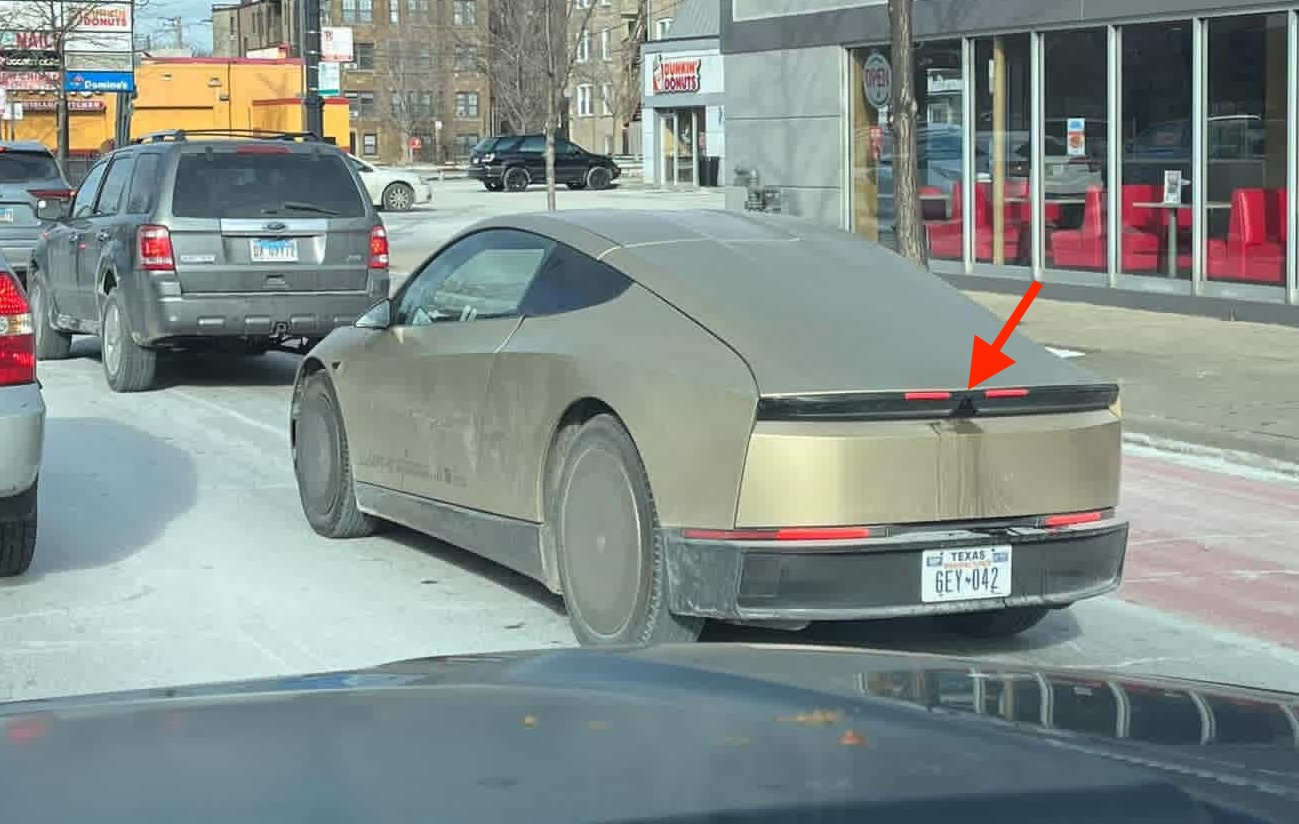
A recent sighting of Tesla’s Cybercab prototype in Chicago appears to confirm a long-requested feature for the autonomous two-seater.
The feature will likely allow the Cybercab to continue operating even in conditions when its cameras could be covered with dust, mud, or road grime.
The Cybercab’s camera washer
The Cybercab prototype in question was sighted in Chicago, and its image was shared widely on social media. While the autonomous two-seater itself was visibly dirty, its rear camera area stood out as noticeably cleaner than the rest of the car. Traces of water were also visible on the trunk. This suggested that the Cybercab is equipped with a rear camera washer.
As noted by Model Y owner and industry watcher Sawyer Merritt, a rear camera washer is a feature many Tesla owners have requested for years, particularly in snowy or wet regions where camera obstruction can affect visibility and the performance of systems like Full Self-Driving (FSD).
While only the rear camera washer was clearly visible, the sighting raises the possibility that Tesla may equip the Cybercab’s other external cameras with similar cleaning systems. Given the vehicle’s fully autonomous design, redundant visibility safeguards would be a logical inclusion.
The Cybercab in Tesla’s autonomous world
The Cybercab is Tesla’s first purpose-built autonomous ride-hailing vehicle, and it is expected to enter production later this year. The vehicle was unveiled in October 2024 at the “We, Robot” event in Los Angeles, and it is expected to be a major growth driver for Tesla as it continues its transition toward an AI- and robotics-focused company. The Cybercab will not include a steering wheel or pedals and is intended to carry one or two passengers per trip, a decision Tesla says reflects real-world ride-hailing usage data.
The Cybercab is also expected to feature in-vehicle entertainment through its center touchscreen, wireless charging, and other rider-focused amenities. Musk has also hinted that the vehicle includes far more innovation than is immediately apparent, stating on X that “there is so much to this car that is not obvious on the surface.”








